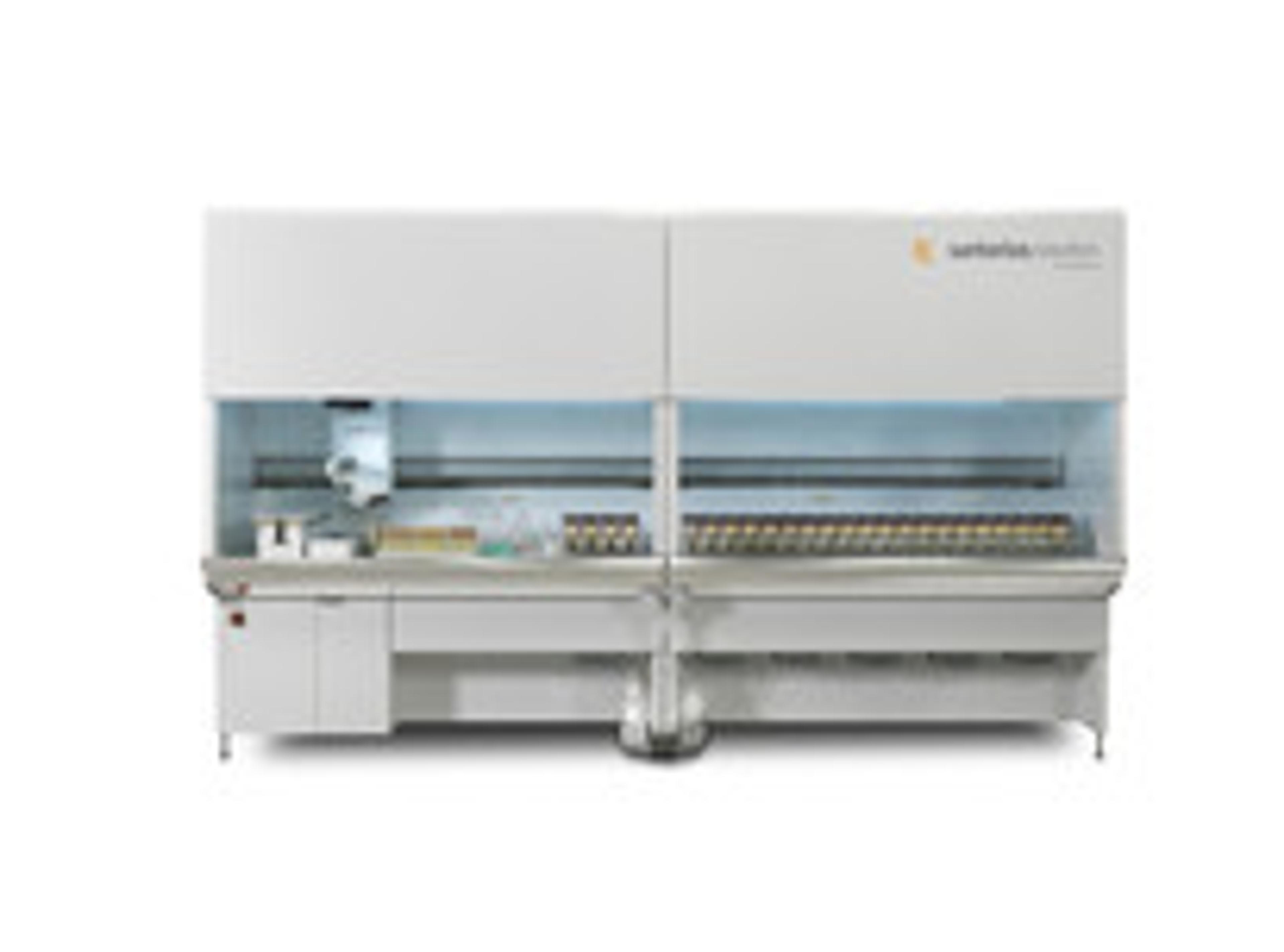New Paper on Automated, Single-use, High-Throughput Process Development at Merck
Presents data on how scientists at Merck are using the ambr® 250 system as a tool for rapid development of both cell culture bioprocesses and microbial fermentation
28 Sept 2015
Sartorius Stedim Biotech (SSB) today announced a new paper entitled, ‘Automated disposable small-scale bioreactor reactor for high-throughput process development: implementation of the 24 bioreactor array’ has been published in the respected, peer reviewed journal, Pharmaceutical Bioprocessing. The paper details how scientists at leading pharmaceutical firm, Merck are utilizing the ambr® 250 automated mini bioreactor system to improve process development of both mammalian and microbial cell culture bioprocesses.
The paper describes how Merck have utilized the ambr 250 as a high through-put scale down model for process development. The results demonstrate the consistency of conditions in each ambr 250 single-use bioreactor across all 24 vessels, allowing for rapid execution of complex design of experiments (DOEs).
The paper also details how the system enabled one scientist to run 24 bioreactors in one experiment, which is up to four times faster than conventional approaches using 3L glass bioreactors. In addition, the use of pre-made sterile assemblies and single-use components greatly reduces set up and cleaning time compared with traditional glass bioreactors, thus improving both set-up and turnaround time.
In summary, the paper represents a powerful example of single-use bioreactor technology integrated with automation to provide a high throughput tool for a new era of rapid bioprocess development and optimization.
Mwai Ngibuini, ambr 250 Product Manager, at SSB commented: “Biologics and vaccine development continues to grow worldwide, with pipelines including monoclonal antibodies and novel scaffold approaches to engineer therapeutic proteins. These approaches require significant process development, complex multifactorial statistical experimentation and huge costs to develop process understanding of factors which impact product quality. Development of high-throughput bioreactor scale-down systems are crucial for satisfying new regulatory understanding of these processes.”
Ngibuini added: “This new paper published by Merck’s scientists shows the efficiency gains of automated high-throughput process development. Their data demonstrates that the ambr 250 technology is a scale down model that enables faster throughput of pipeline projects, therefore significantly increasing the upstream process development of protein-based therapeutics manufactured by microbial and cell culture processes.”

